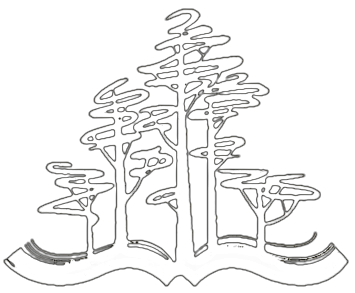Summer School on the Russian Literature. 2020.
Vol. 16. № 3-4
The article is devoted to the identification of the concept of the text as of the existential phenomenon functioning in the process of creation and in the reception of the meanings embed in the text in the novel by A. Bitov The Teacher of Symmetry. The alternative possibilities of the text were conceptualized by Bitov as a way of understanding of the being and of consolidating of the meanings in culture, and also as an opportunity of its replicating, inevitable distortion and profanation. The forms of changing of the of author’s conception when it is embodied in the text and the forms of the life of the text in the cultural tradition were defined.
Keywords: A. Bitov, „The Teacher of Symmetry“, text, reception, evolution of author’s conception, cultural tradition.
Keywords: A. Bitov, „The Teacher of Symmetry“, text, reception, evolution of author’s conception, cultural tradition.
Ekaterina Bukhanova
The fate of the text in Andrey Bitov’s novel The Teacher of Symmetry
The article is devoted to textological analysis of two printed editions of Viktor Petrovich Astafiev’s novel Damned and killed. The transformation of content, structural, and stylistic features of the magazine version of the work into a book version is revealed.
Keywords: war literature, V. Astafiev, Damned and Killed, textological analysis
Keywords: war literature, V. Astafiev, Damned and Killed, textological analysis
Anastasiia Imennykh
Two versions of Victor Astafiev’s novel Damned and Killed: Notes on the publication history
Bunin reacted sharply to any attempt to call his novel The Life of Arseniev an autobiography and actively opposed such statements in the press. However, as it seems to us, he thus played a double game, since he understood the inevitability of comparisons. Therefore, he used his novel as a tool to correct his own biography through the idealized image of Alexei Arseniev. In this Bunin was also helped by his wife (V. N. Muromtseva) by writing an idealized biography of her husband — The Life of Bunin. This biography, according to the author of the article, was written based on the The Life of Arseniev, and therefore it is difficult to perceive it as an independent biographical work. As a result, we can observe how fiction is passed off as a biography, and a biography becomes fiction.
Keywords: I. A. Bunin, „The Life of Arseniev“, biography, autobiography, speculation, ideology, „The Life of Bunin“, S. Ya. Nadson.
Keywords: I. A. Bunin, „The Life of Arseniev“, biography, autobiography, speculation, ideology, „The Life of Bunin“, S. Ya. Nadson.
Maxim Shavlinsky
The Life of Arseniev and The Life of Bunin as a way of deliberate speculate on biography
The paper deals with the analysis of composition and rhetoric structure of a series of panegyrics glorifying the victory at Poltava (1709). The research is based on three sermons by Stefan Yavorsky of 1709 and 1716 and two sermons by Feofan Prokopovich of 1709 and 1717 The paper concentrates on the difference between composition features of early and late panegyrics the honour the victory at Poltava.
Keywords: the Victory at Poltava, Stefan Yavorsky, Feofan Prokopovich
Keywords: the Victory at Poltava, Stefan Yavorsky, Feofan Prokopovich
Artyom Trofimov
Composition features of the panegyrics in honour of the Victory at Poltava
(based on Stefan Yavorsky’s and Feofan Prokopovich’s works)
(based on Stefan Yavorsky’s and Feofan Prokopovich’s works)
The article presents an analysis of Enchiridion by stoic philosopher Epictetus, translated by Antiochus Cantemir from the ancient Greek language into Russian. The first part of the article provides a brief overview of the context before origin of the Cantemir’s text. In the second part, the source is established that became the basis for the translation of Cantemir. The author comes to the conclusion that the edition of 1711 served as the source for Cantemir. Further, the text of Cantemir is analyzed. To find out the peculiarity of the translation of Cantemir, the author compares it with the text Grigory Poletika. It is concluded that in the translation of Cantemir, the main characteristic is laconicism.
Keywords: Greek stoic composition, translated activities of the 18th century in Russia, source, style.
Keywords: Greek stoic composition, translated activities of the 18th century in Russia, source, style.
Heng Fu
Enchiridion of Epictetus: translations of Antiochus Cantemir and Grigorij Poletika
The article based on the analysis of Ivan Goncharov’s correspondence with his relatives and the memories reconstructs the motives guided the writer making his first will. Goncharov left most of his inheritance to the widow of his servant and their three children. The article shows how this decision matured and why it was the fall of 1879 when the first will was drawn up. The article also provides a more balanced analysis of the A. N. Goncharov’s memoirs about his uncle which were previously considered by researchers as biased and untruthful.
Keywords: I. A. Goncharov, last will, correspondence, inheritance law of Russian Empire.
Keywords: I. A. Goncharov, last will, correspondence, inheritance law of Russian Empire.
Alexey Balakin
Notes on Ivan Goncharov’s Testament
The article is devoted to the M. Krestovskaya’s collection Corners of the theatrical world (1885), which is consist of the novels Isa and Lelya. The central topic is the harmful influence of the theatrical environment on the lives and destinies of people. As shown in the article, the problems, raised in the collection (the vulgarity and depravity of the theatrical backstage, the insensitivity of artists and their deafness to each other’s problems, the defenselessness of actresses etc) were very relevant for the Russian theater during the creation of stories.
Keywords: M. V. Krestovskaya, history of Russian theater, backstage, M. Savina, P. Strepetova.
Keywords: M. V. Krestovskaya, history of Russian theater, backstage, M. Savina, P. Strepetova.
Mariya Astashenkova
M. Krestovskaya’s digest Corners of the Theatrical word as an example of Russian theatrical prose of the 1880’s
The article is devoted to the study of the concept of love in the Valery Bryusov’s lyrical novel Decadent. The author analyzes peculiarities and main components of this concept, demonstrates its evolution stages in the novel and the influence on the formation of the main images, themes, motifs and techniques in the writer’s work (themes of Russian decadence, motives of spiritism and the game-mystification, the image of ubermensch (also he is a gamer, genius and medium) and his double (shadow, the reflection of genius) ect.)
Keywords: love is a game, love is a fate, love is a death, ubermensch, spiritism, V. Bryusov.
Keywords: love is a game, love is a fate, love is a death, ubermensch, spiritism, V. Bryusov.
Anastasia Polumordvinova
Love as a game, love as a fate and love as a death in Valery Bryusov’s lyrical novel Decadent
The article is devoted to an analysis of the relationship between the tradition of literary naturalism and the Russian symbolist novel. As will be seen, the novel The Petty Demon by F. Sologub was created under the influence of the naturalist narrative about neurasthenia and degeneration. As an example of such a naturalist narrative, the collection of short stories by A. V. Amfiteatrov Psychopaths was chosen.
Keywords: naturalism, symbolism, neurasthenia, degeneration, F. Sologub, A. V. Amfiteatrov.
Keywords: naturalism, symbolism, neurasthenia, degeneration, F. Sologub, A. V. Amfiteatrov.
Dmitry Zaytsev
Naturalist narrative about neurasthenia and degeneration and the Russian symbolist novel
Influence of the A. V. Amfiteatrov’s collection Psychopaths on Fyodor Sologub’s novel The Petty Demon
Influence of the A. V. Amfiteatrov’s collection Psychopaths on Fyodor Sologub’s novel The Petty Demon
This essay relates Mstislav Dobuzhinsky’s artistic and production involvement with two of Boris Pronin’s cabaret theatres, The Comedians’ Camp and The Peripatetic Enthusiast. The author scrutinizes Dobuzhinsky’s creative relationships with prominent playwrights, artists, set designers and stage directors, Mikhail Kuzmin, Anatolii Lunacharsky, Piotr Sazonov, Yuliia Slonimskaya-Sazonova, Piotr Potemkin, Boris Romanov, and Marc Chagall. The artist’s diaries of 1919 are published here for the first time. The author also reconstructs history of The Peripatetic Enthusiast, the last Pronin’s cabaret.
Keywords: History of Russian theater, History of Russian cabaret, literary environment, artistic environment, Cultural history of Petrograd, Mstislav Dobuzhinsky, Cultural history of Moscow, Boris Pronin, „The Comedians’ Camp,“ „The Peripatetic Enthusiast“.
Keywords: History of Russian theater, History of Russian cabaret, literary environment, artistic environment, Cultural history of Petrograd, Mstislav Dobuzhinsky, Cultural history of Moscow, Boris Pronin, „The Comedians’ Camp,“ „The Peripatetic Enthusiast“.
Andrei Ustinov
Mstislav Dobuzhinsky and the Russian Cabaret Culture
The article discusses the 1924 obituary poetry („the mournful discourse“) in relation to the transformation of the „leader cult“ (Lenin to Stalin) that took place in the 30s–50s. The article demonstrates the ways in which the fact of Lenin’s death gets metaphorized by progressively identifying „person“ with „deed“, „idea“ and then the dogma of „Leninism“. The article gives special attention to the issues concerning the reconsideration of the status of Lenin’s body, and more than that, to the strategies of depersonificating and emblematizing Lenin’s image. On the basis of a wide range of historical and cultural sources we form a possible trajectory of the replacement of Lenin’s image with the quasi-myth of Stalin and the relative chronology of its (quasi-myth’s) following becoming the „motivating basis“ to the „leader cult“.
Keywords: Vladimir Lenin, Joseph Stalin, cult leader, Leniniana, Staliniana.
Keywords: Vladimir Lenin, Joseph Stalin, cult leader, Leniniana, Staliniana.
Dmitry Tsyganov
From the „Lenin“ cult to the „Stalin“ cult: strategies of depersonificating the image of Lenin in obituary poetry due to its later elimination by the Stalin
quasi-myth
quasi-myth
The article discussed the correlation of the final text of Goncharov’s novel The Precipice to the sketches of the main character Boris Rayskiy made for his own book with the same plot. The protagonist’s failure to create a novel is considered a challenge to the reader’s creative activity. The article includes the analysis of the hypothesis that the narrator of The Precipice used Rayskiy’s sketches and of the parallel to the final sentence of Goncharov’s novel Oblomov.
Keywords: Ivan Goncharov, „The Precipice“, novel, reader.
Keywords: Ivan Goncharov, „The Precipice“, novel, reader.
Mariia Nachinkova
Boris Rayskiy’s sketches and Ivan Goncharov’s novel The Precipice
Contacts
summerschool@list.ru
В оформлении сайта использованы материалы Freepik.


